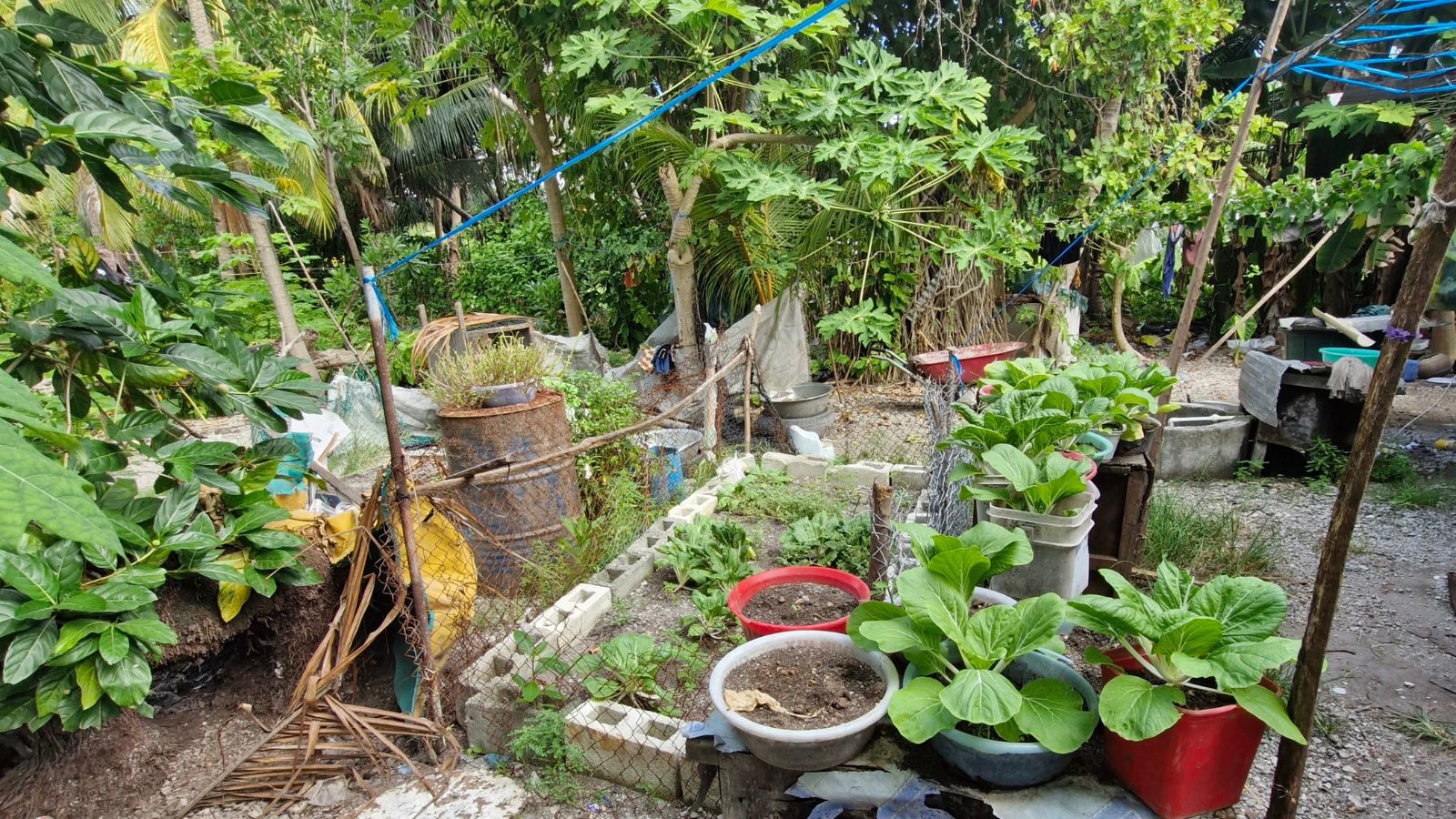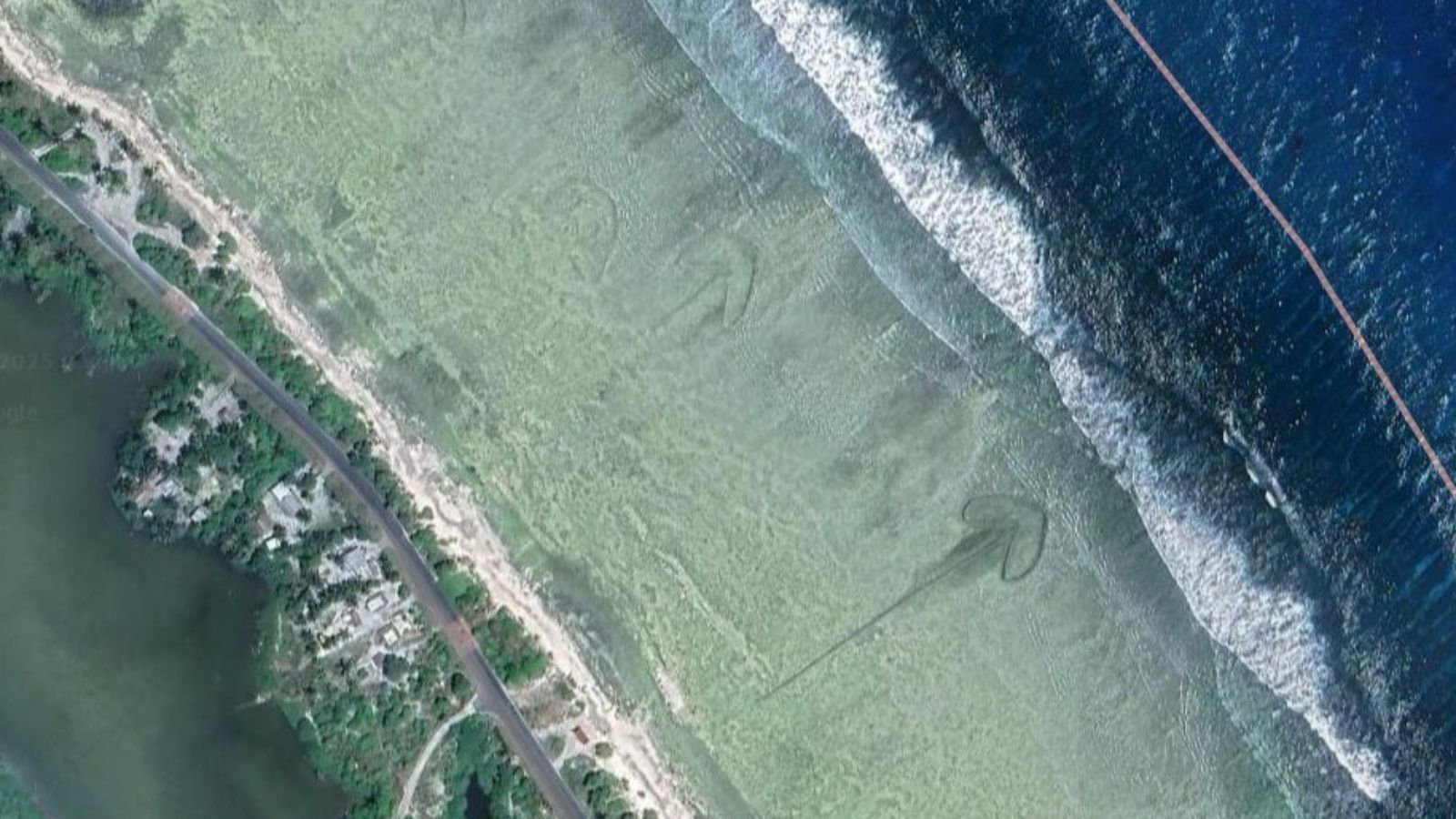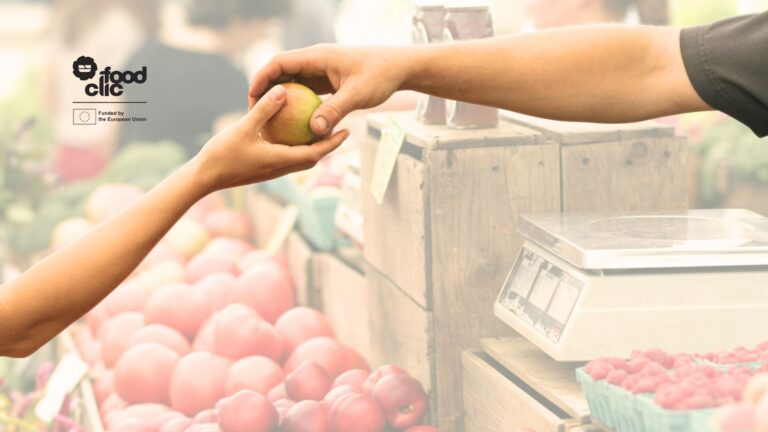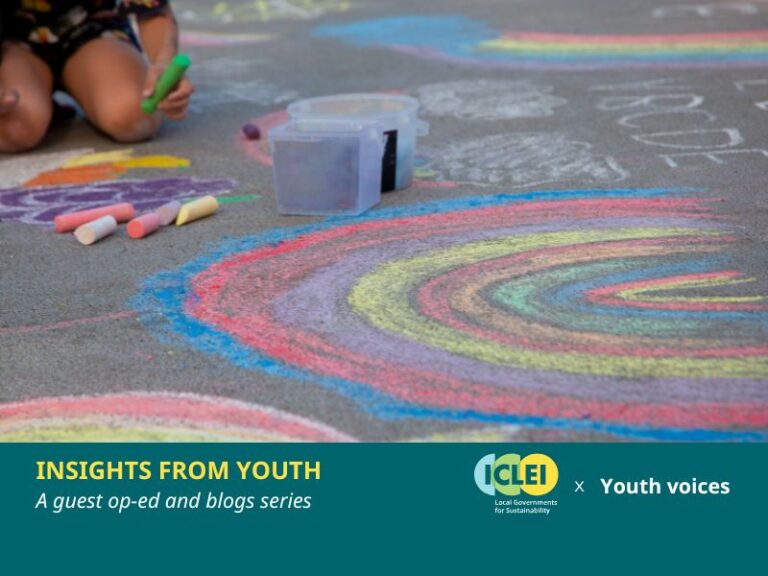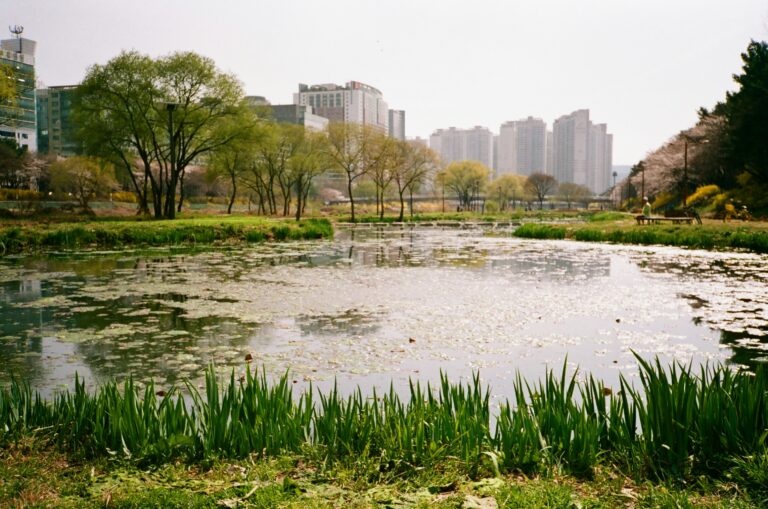In the Pacific, Kiribati enhances food resilience against the tide
*This blog was written by Tim Lazaroff and Flora Allesina (ICLEI World Secretariat), with contributions from Luigi Zarro (ICLEI Oceania), and edited by Selina Emanuel and Matteo Bizzotto (ICLEI World Secretariat).
With just 134,518 inhabitants in 2024, Kiribati is an atoll island nation in the Pacific. Home to half its population, South Tarawa encapsulates many resilience challenges facing Small Island Developing States (SIDS): Climate change, remoteness, and economic fragility, to name a few. However, food, as communities in South Tarawa have repeatedly reminded us, has consistently been high on the list.
ICLEI’s work on blue-green development over the last three years addresses food security through the lens of resilience, making for a unique blend of community-based and global solutions.
Addressing food security in South Tarawa means acknowledging many uncomfortable truths at once. Space on a remote atoll with significant in-migration from nearby islands is scarce, and the highest point is only 3 meters above sea level. Tarawa, despite being in the middle of the ocean, is increasingly drought-prone, which makes land-based food production difficult, and its lagoon’s
Rising sea levels also pose a considerable concern because of tidal flooding and saltwater intrusion. Mainstream cultivation methods are often unsuitable for horticulture in atoll soils. This makes any local produce extremely expensive, and has kept Kiribati overly reliant on cheap, imported, low-nutrient food.
When global trade collapsed during COVID-19, Kiribati was left without locally-sourced, nutricious food. To reduce Tarawa’s dependence on imports, address climate change, and strengthen self reliance and food security, the Blue-Green Development in Kiribati project, funded by the German Government’s International Climate Initiative (IKI), began in 2022 with the priority of enhancing the resilience of local communities and councils to these challenges.
The project’s grounding in community-based development distinguishes its operations: It is designed to have ten communities lead the shift towards sustainable livelihoods. Governance remains within the community, honoring the traditional maneaba system, an inclusive dialogue process in which every participant has a voice.
Those very communities asked for land-based food production, so ICLEI –and local customary knowledge holders– have answered the call.
Homegrown wisdom grows the harvest
The project supported training for community members to learn and implement methods that Tarawa-based trainers have been refining and practicing for decades.
Horticulture, biochar, livestock, seaweed composting, seagrape cultivation, and aquaponics were all explored. ICLEI has profiled the benefits of a customary-knowledge approach in the case study, titled Trusting Pacific Wisdom.
For instance, experienced horticulturalist Dr. Mareko Tofinga led training courses focused on climate-resilient horticulture. His work and research focus on using seaweed compost to boost food production, collecting it from ocean beaches. He also mentored students who applied these techniques in their own gardens.
Meanwhile, horticulturist Ms. Mamarau Kairirieta hosted a three-month course, even providing seedlings and tools, guiding community members through the full process from the setup of their gardens to the production and marketing of their crops.
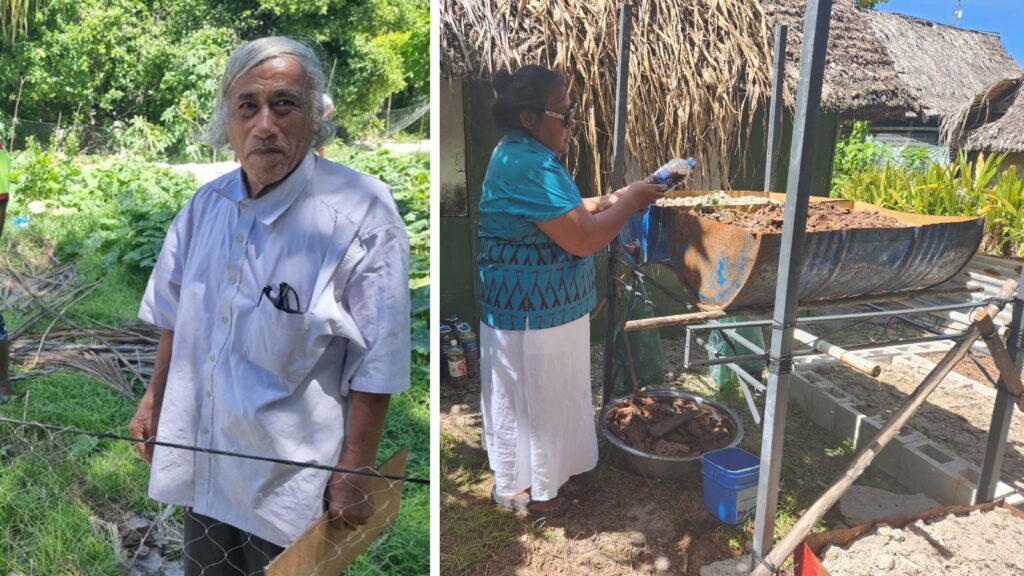
Photo: ICLEI – Local Governments for Sustainability
In addition, Mr. Karibanang Tamuera is a respected Pacific fisheries expert and oversees the Ministry of Fisheries’ Aquaculture Program. He has developed his own methods for seaweed compost and has extensive experience hatching fry and raising fish for aquaponics. He also promotes sea grapes as a food source in Kiribati, advising on where they grow.
Efforts extended to other areas as well, with local experts such as Ms. Tebweretaake Tokantakaake conducting a pilot program for community livestock, establishing shelters for pigs and poultry.
From the start, there was high demand for horticultural training, particularly among young women. Training boosts economic resilience and food security, whether participants only grow for self-consumption or end up selling their produce. To date, more than 100 households are continuing their horticulture activities independently of project support.
This highlights the importance of involving local knowledge holders in the transition process, as a purely top-down development approach relying only on external consultants would likely struggle to achieve the same level of community acceptance and sustained participation.
Having not only in-country but in-community experts, alongside a community-centred project design, helped drive lasting change in South Tarawa’s communities.
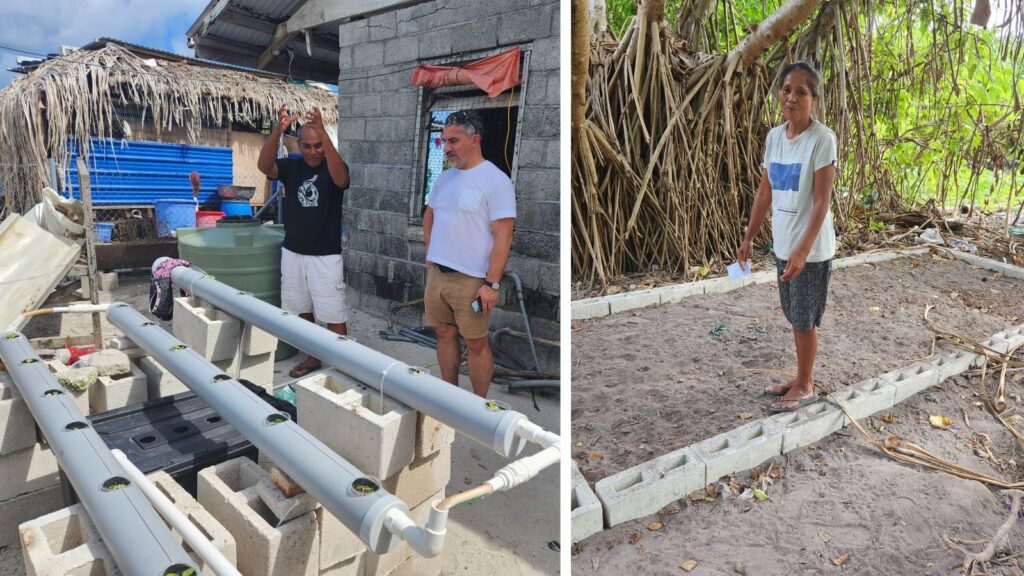
Photo: ICLEI – Local Governments for Sustainability.
The collaboration between local and international experts has also opened doors to continued exploration of agricultural innovations, such as small-scale biochar production, a carbon-rich material made from wood chips or other plant matter that helps combat salinity and retain moisture in depleted soils.
With additional support from funders, there’s potential to meet food security challenges in Kiribati and neighboring Pacific countries. The Transformative Actions Program proposal, Sustainable Livelihoods for Kiribati & Broader Pacific, shares how communities intend to upscale project efforts, focusing on community-led actions not only to improve food and water security, but also waste management, resilient housing, and ecosystem restoration.
These community-led steps turn vulnerability into agency, planting the seeds of a resilient, homegrown food future for Kiribati. By centering local expertise and pairing it with practical tools, communities are restoring confidence in land-based food systems and strengthening stewardship of their atoll landscapes. In this way, food resilience is not imported; it is renewed from within.
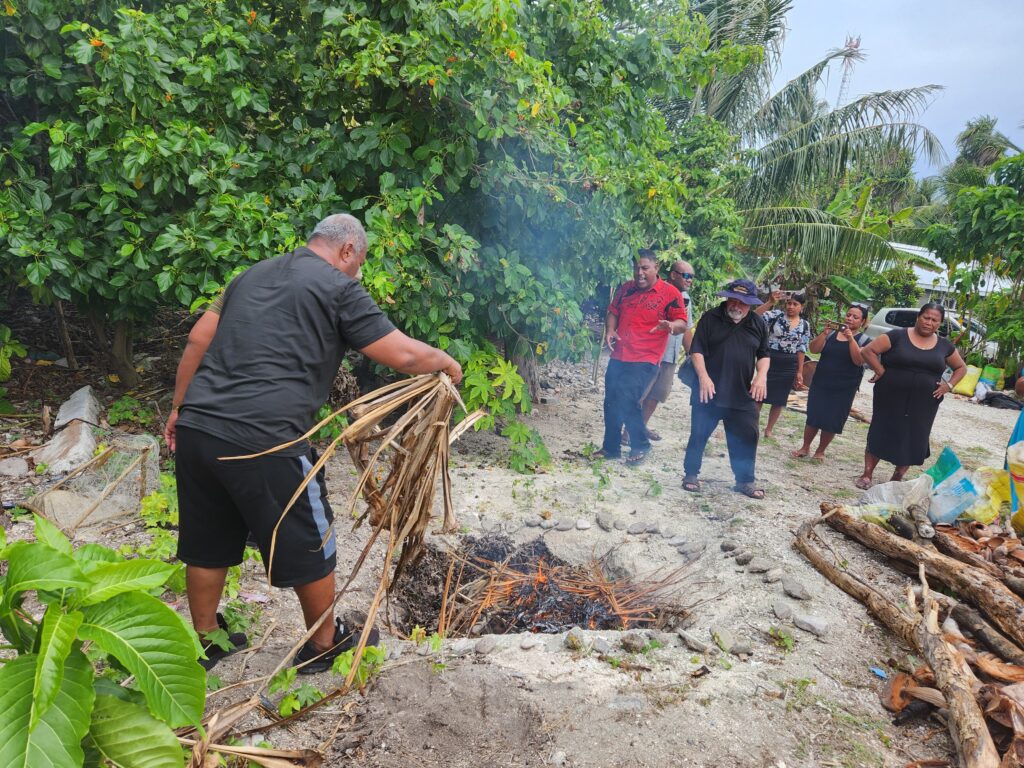
Photo credit: ICLEI – Local Governments for Sustainability

